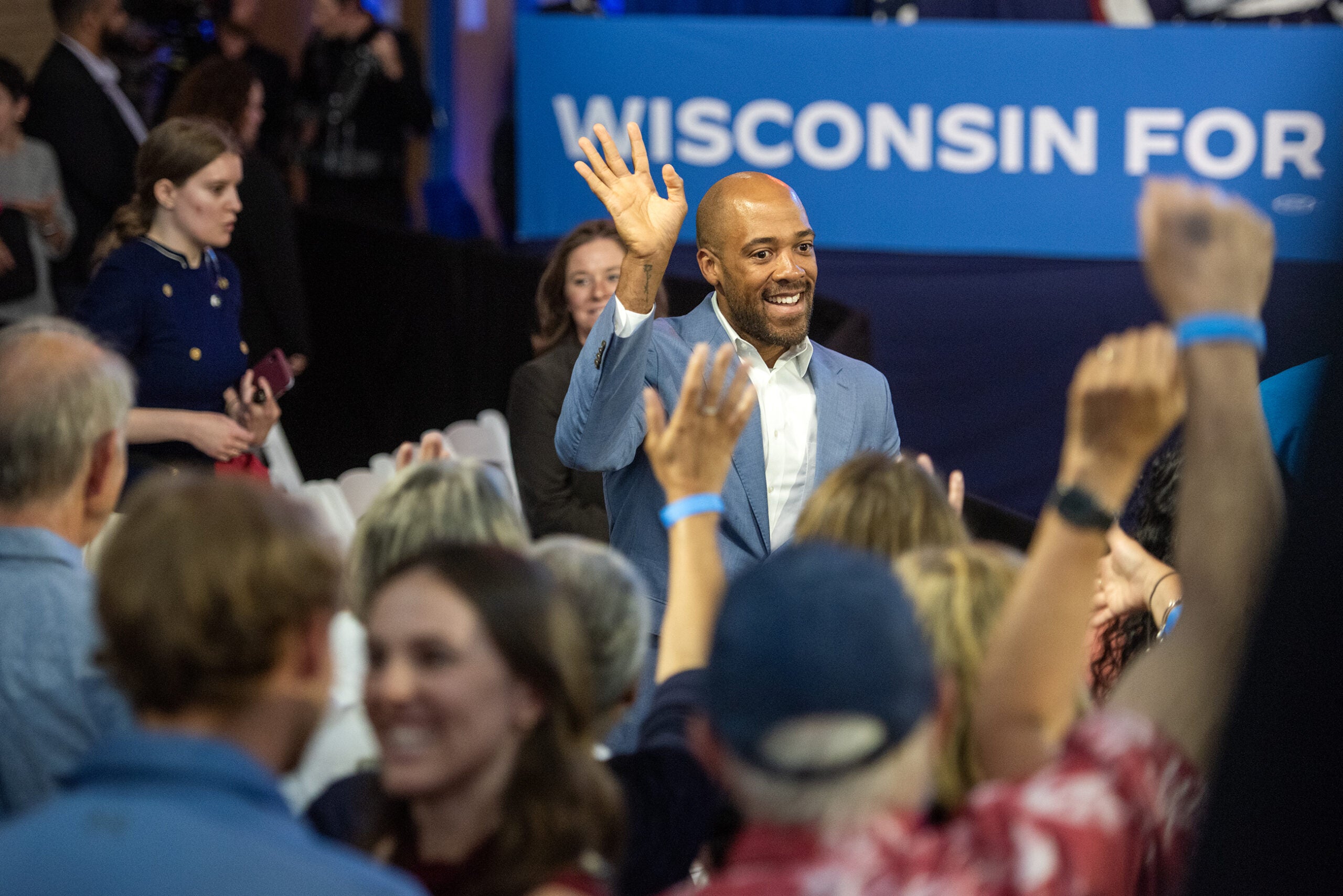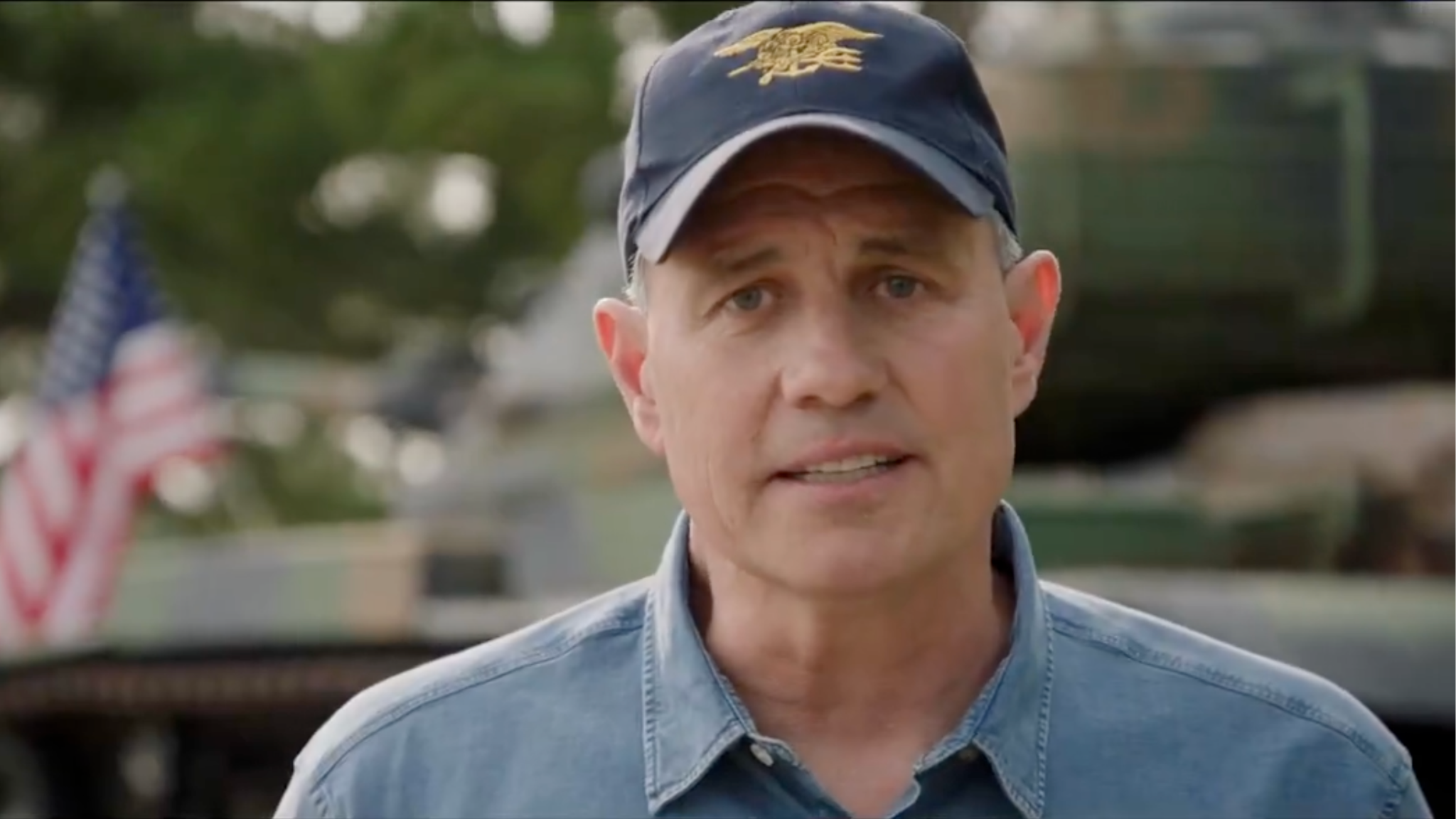Danny Paice is waiting for his train home at the Fullerton “L” stop in Chicago.
Paice is wearing a light gray suit and is listening to something on his iPhone. A white headphone cord trails into the pocket of his winter coat.
Paice says he’s seen the ads for Wisconsin in the “L” train cars. He can recite the tagline: “Wisconsin: It’s more you.”
News with a little more humanity
WPR’s “Wisconsin Today” newsletter keeps you connected to the state you love without feeling overwhelmed. No paywall. No agenda. No corporate filter.
“I think they’re good advertisements,” he said.
The aim of the $1 million campaign is to inspire Chicago millennials to move to Wisconsin.

Advertisement courtesy of ©2018 Wisconsin Economic Development Corporation
It was launched in January by the Wisconsin Economic Development Corp. and includes posters on “L” trains and video and audio ads on websites and mobile applications like Facebook, Instagram, and YouTube.
Paice said he likes Wisconsin, because his family has vacationed there his whole life, but he doesn’t think it’s the right time in his life to move somewhere outside of Chicago.
“I wouldn’t really want to uproot and leave all my friends here,” he said.
Gov. Scott Walker is hoping other 21 to 35-year-olds in the city feel differently.
Walker is asking the state Legislature to approve $6.8 million to expand the campaign to other Midwestern cities, like Minneapolis.
The expanded campaign would continue to advertise things like the lower cost of living in Wisconsin, compared to urban areas in neighboring states, and shorter commute times.
Walker announced the plan at a meeting of business leaders in Madison late last year.
“We can make a pretty compelling case about the the differential between actually doing things in Wisconsin, out canoeing or enjoying a concert or having a drink with friends, as opposed to being stuck in commuting time,” Walker said at a Wisconsin Manufacturers & Commerce event in November 2017.
Walker said the state needs to do more to combat its shortage of young workers.
“We need to go beyond our borders to attract and in turn retain more talent here in the state of Wisconsin,” he said.
Colleen Ferguson, 30, stood down the crowded “L” train platform from Danny Paice. She was also waiting to take the brown line home from work.
Ferguson, a recent law school graduate, said she thinks it’s smart for the campaign to focus on the downsides of commuting in Chicago.
“You can get around here, but there’s always mechanical issues, sometimes there’s just scheduling issues,” she said. “So you really have to plan your day around the transport system.
Ferguson said she’d definitely consider moving to Wisconsin, especially if there was a good job there for her.
Ian Frank, another Chicago resident, also said he’d consider moving if there was a good job for him in the state. But he’d advise lawmakers against approving the additional funding for the campaign. He described it as “a little passive aggressive.”
“I feel like I’m being asked to reconsider my life choices, which is appropriate, but also feels a little like, ‘back off Wisconsin!‘” he said.
William Frey is a senior fellow at the Brookings Institution, where he studies population trends. Frey said studies have shown millennials do tend to move where the jobs are even if they’re not moving to the coolest place.
He cited an influx of young people moving to North Dakota in recent years.
“Nothing against North Dakota, but there are other more high-amenity places in the country that people would like to live,” Frey said. “But they went there because of the jobs. So jobs are very important.”
Frey said Wisconsin isn’t alone in having an aging population. Other states, particularly in the “middle of the country,” have that problem.
But he hasn’t heard of another state that’s used an ad campaign to try to address the problem.
The state Assembly voted last month to approve Walker’s plan. Most Democrats voted against the measure, arguing the money would be better spent on job training for people who already live in Wisconsin.
“Advertising is great, but we really need to take care of our own citizens in this state,” said Rep. Gary Hebl, D-Sun Prairie.
Democrats have also argued for using the $7 million to launch initiatives they think would be appealing to millennials, like state-backed options for student loan refinancing.
The state Senate is expected to take up the bill next week. If it passes, the plan will go to Walker’s desk for his signature.
Wisconsin Public Radio, © Copyright 2025, Board of Regents of the University of Wisconsin System and Wisconsin Educational Communications Board.







